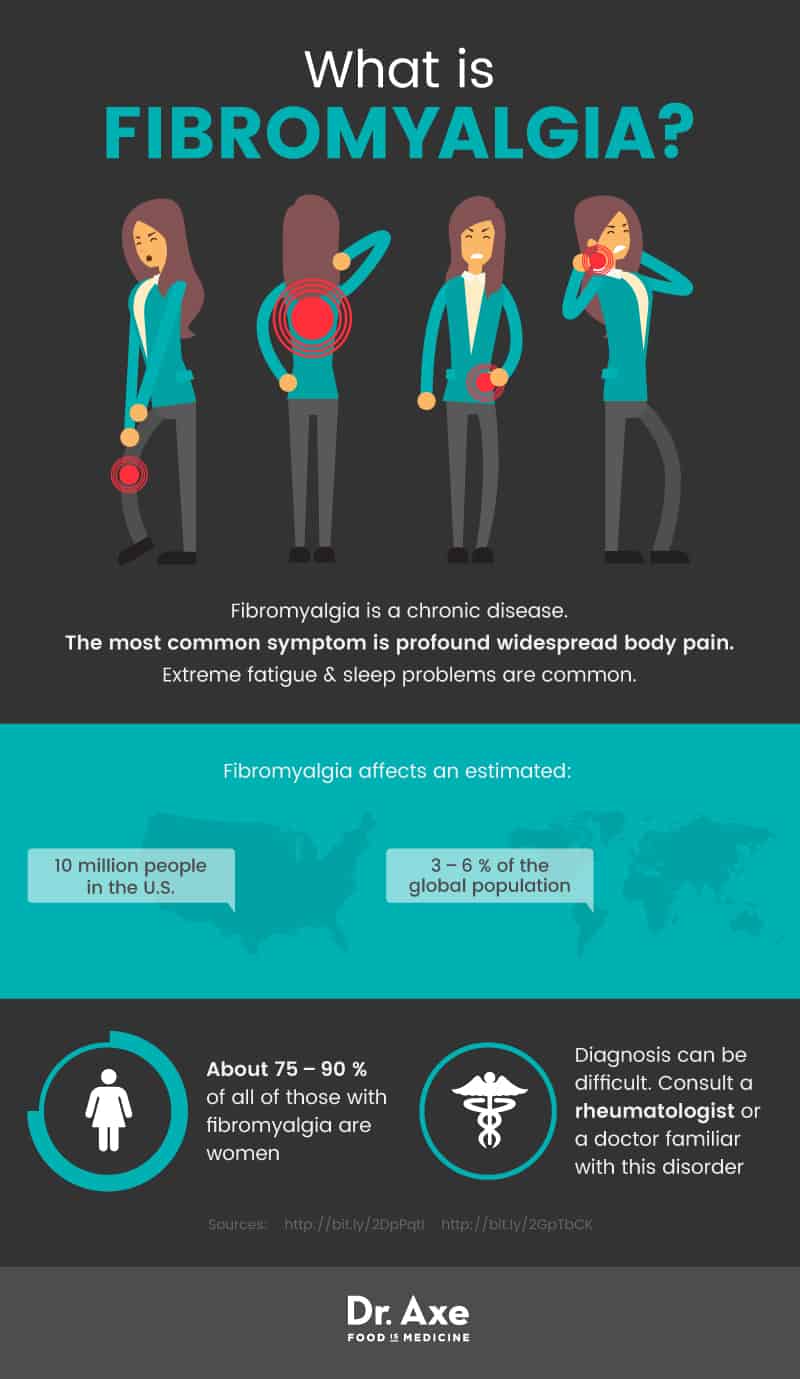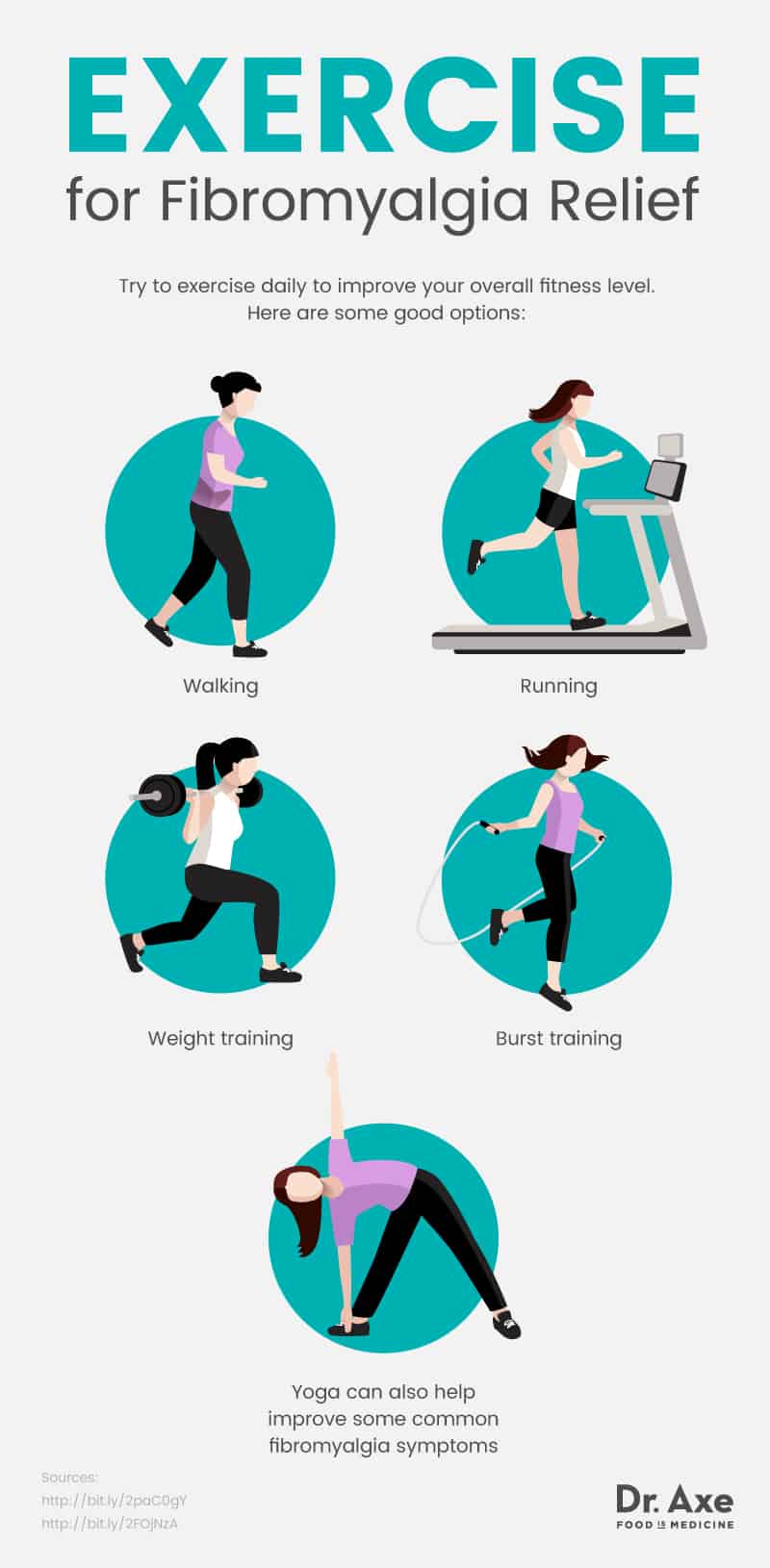This Dr. Axe content is medically reviewed or fact checked to ensure factually accurate information.
With strict editorial sourcing guidelines, we only link to academic research institutions, reputable media sites and, when research is available, medically peer-reviewed studies. Note that the numbers in parentheses (1, 2, etc.) are clickable links to these studies.
The information in our articles is NOT intended to replace a one-on-one relationship with a qualified health care professional and is not intended as medical advice.
This article is based on scientific evidence, written by experts and fact checked by our trained editorial staff. Note that the numbers in parentheses (1, 2, etc.) are clickable links to medically peer-reviewed studies.
Our team includes licensed nutritionists and dietitians, certified health education specialists, as well as certified strength and conditioning specialists, personal trainers and corrective exercise specialists. Our team aims to be not only thorough with its research, but also objective and unbiased.
The information in our articles is NOT intended to replace a one-on-one relationship with a qualified health care professional and is not intended as medical advice.
Natural Fibromyalgia Treatment Options, Including Diet & Supplementation
March 27, 2018

Chronic pain affects millions of people in the United States. According to the National Fibromyalgia Association, fibromyalgia affects an estimated 10 million people in the U.S. and approximately 3 percent to 6 percent of the global population. (1) Researchers estimate that somewhere between 75 percent and 90 percent of all of those with fibromyalgia are women.
Fibromyalgia is a chronic disease with the most common fibromyalgia symptom being profound widespread body pain. In addition, extreme fatigue and sleep problems are common. Many of those diagnosed experience symptoms from overlapping conditions including irritable bowel syndrome, restless legs syndrome, Sjögren’s Syndrome and Raynaud’s Syndrome. (2)
According to the American College of Rheumatology, diagnosis requires a history of widespread pain and accompanying other symptoms including fatigue, headaches, and difficulty sleeping; brain fog or poor cognitive function; anxiety and depression. Diagnosis can be difficult as pain is subjective; physicians knowledgeable about this disorder, or a rheumatologist, should be consulted whenever possible. (3)
Research suggests genetics play a role in fibromyalgia as it is often seen in siblings as well as in mothers and their children. And, for some, fibromyalgia symptoms can begin after an acute illness, injury or prolonged emotional stress leading researchers to believe fibromyalgia can be triggered by a trauma, either physical or psychological. (4)
Fortunately, there are a number of natural fibromyalgia treatment options that can help alleviate the symptoms. Natural fibromyalgia treatment can include:
- Changing to a fibromyalgia diet
- Adding supplements to your diet
- Using essential oils and complementary therapies like massage, meditation and counseling may also help relieve pain and fatigue
Related: Green Light Therapy Benefits for Migraines & Pain Management

The Fibromyalgia Diet
Diet plays a big role in successful natural fibromyalgia treatment. The overall goal is to eat real foods that help to reduce inflammation and avoid any foods that cause inflammation. To accomplish this, eating a low FODMAP diet has been shown to significantly reduce fibromyalgia symptoms, gastrointestinal symptoms and pain according to a longitudinal study published in Scandinavian Journal of Pain. This small study implemented dietary FODMAP restrictions. To support the findings, researchers urged more and extended research on dietary therapy. (5)
So, what are FODMAPs? They are a group of sugars that aren’t completely absorbed by the body. This results in fermentation in the digestive tract leading to gastrointestinal upset.
Foods to Eat On a Low FODMAP Diet: (6)
Vegetables: Bell peppers, bok choy, carrots, cucumbers, lettuce, potatoes, summer squash and winter squash.
Fruit: Bananas, berries, cantaloupe, grapes, honeydew melon, kiwi, kumquat, citrus fruits, pineapple and rhubarb.
Dairy & milk alternatives: Raw hard cheeses, almond milk, coconut milk, rice milk, goat milk yogurt and kefir.
Protein sources: Eggs, grass-fed beef and lamb, free-range chicken and turkey, wild-caught fish and tempeh.
Breads & grains: Gluten-free oats, GMO-free corn, GMO-free rice, quinoa, sourdough spelt, gluten-free bread and gluten-free pasta.
Nuts & seeds (preferably sprouted or as butter): Macadamia nuts, peanuts, pecans, pine nuts, pumpkin seeds and walnuts.
Seasonings & condiments: Avocado oil, coconut oil, grape seed oil, grass-fed butter, all-natural mayonnaise, mustard, olives, maple syrup, vinegar, soy sauce and salad dressing made with ingredients on this list.
Foods to Avoid:
The following foods have been identified as high in FODMAPs by Monash University, where researchers Peter Gibson and Dr. Sue Shepherd developed the low FODMAP diet. (7)
Fructose: Certain fruits like apples, honey, high fructose corn syrup
Lactose: Cow’s milk dairy, including yogurt and kefir, goat’s milk, products with added lactose and soft cheeses
Fructans: Wheat, rye, garlic, onion and inulin
Galactans: Legumes, lentils and soybeans
Polyols: Sweeteners including sorbitol, xylitol, mannitol, isomalt and stone fruits including avocados, apricots, cherries, nectarines, peaches and plums
Excess alcohol and caffeine.
Processed foods and foods with additives.
Fermented products to avoid: Sauerkraut from common cabbage; cow’s milk yogurt and kefir; pickled onions and pickled mixed vegetables (8)
Natural Fibromyalgia Treatment
Top Supplements for Fibromyalgia
1. Magnesium Citrate (500 mg daily)
Fibromyalgia has been linked to magnesium deficiency and research shows that magnesium supplements may help to reduce troublesome symptoms, including pain. According to a study published in the journal Rheumatology International, women given 300 milligrams of magnesium citrate daily for eight weeks experienced improvement in the number of tender points, tender point index, FIQ and Beck depression scores. (9)
In addition to pain relief, magnesium supplements may also dramatically improve insomnia, sleep time, sleep latency and sleep efficiency according to a study published in the Journal of Research in Medical Sciences. In this double-blind placebo-controlled clinical trial, participants were given 500 milligrams of magnesium or a placebo daily for eight weeks. (10) As sleep problems are common for those with fibromyalgia, a high-quality supplement and boosting intake of magnesium-rich foods should be a top priority and can help as a natural fibromyalgia treatment.
Fortunately, there are plenty of low-FODMAP foods that are also rich with magnesium. Add cooked spinach, bananas and pumpkin seeds to your diet to boost this essential mineral that may help relieve both pain and sleep problems for those with fibromyalgia.
2. Fish Oil (1,000 mg daily)
Known for its anti-inflammatory properties, taking a high-quality fish oil supplement may help to reduce inflammation and pain, as well as improve immune system functioning. Select a high-quality omega-3 fish oil or cod liver oil. They are both packed with vitamins and nutrients beyond just essential fatty acids.
As a precaution, if you are on high blood pressure medications, anticoagulants, have asthma or are pregnant talk to your doctor before taking a fish oil supplement. Fortunately, it is safe for most people to enjoy omega-3 rich foods. Several times a week, enjoy wild-caught fish including salmon, mackerel, tuna and herring as well as walnuts and eggs.
3. Vitamin D3 (5,000 IU daily)
Vitamin D deficiencies are astoundingly common today, with some researchers estimating nearly 90 percent adults being deficient in this essential nutrient. (12). Vitamin D deficiency can exacerbate autoimmune conditions including fibromyalgia and in a meta-analysis published in the Korean Journal of Pain, patients diagnosed with fibromyalgia have a significantly lower level of vitamin D serum levels than those without a diagnosis. (13) Boosting your vitamin D intake could be a helpful natural fibromyalgia treatment.
Vitamin D3’s proven health benefits include enhancing the immune system, improving mood and strengthening cognitive functioning. (14, 15) The best way to boost your vitamin D serum levels is to get out in the sun for 10 to 20 minutes each day — without sunscreen. In addition, there are plenty of foods that are low-FODMAP that you can enjoy to increase levels, including wild-caught fish.
4. D-Ribose (5g 3x daily)
Ribose is a sugar found in our bodies that fuels organs and tissues in the body and it is often used intravenously to measure heart damage and as a treatment for certain symptoms associated with myoadenylate deaminase deficiency as well as for those diagnosed with chronic fatigue syndrome, fibromyalgia and coronary artery disease. (16)
Research indicates that taking a ribose supplement may help to improve sleep, improve energy levels, improve your sense of well-being and decrease pain for those diagnosed with fibromyalgia. A small study published in the Journal of Alternative and Complementary Medicine found D-Ribose significantly reduced clinical symptoms for those with fibromyalgia and chronic fatigue syndrome. In the study, participants were given 5 grams daily and 66 percent of patients experienced significant improvement. (17)
If you are diabetic, D-ribose may lower blood sugar and if you are on insulin or other common diabetes medications including glimepiride, glyburide, pioglitazone, glipizide and others, you should not take D-ribose. In addition, there is evidence that D-ribose interacts with aspirin, alcohol, choline magnesium trisalicylate, propranolol and salsalate. Use extreme caution if you take any of these medications. (16)
5. Ashwagandha (500–1,000 mg daily)
Adaptogen herbs like rhodiola and ashwagandha help to normalize physiological functions after stress and may help to increase your tolerance against stressors. (18) While the medical community is still exploring potential health benefits, ashwagandha shows promise in the treatment of chronic pain.
In a small study published in the Journal of Ayurveda Integrated Medicine, researchers found that ashwagandha shows analgesic and anti-inflammatory effects. Participants who were given 250 milligrams daily experienced significant reduction in pain. (19) Additionally, ashwagandha promotes restful sleep and boosts the immune system while rhodiola is shown to enhance mental and physical performance, boost immune system response and improve memory function. (20)
6. Turmeric (1,000 mg daily)
Many of the proven health benefits of turmeric can help relieve common symptoms of fibromyalgia including pain, inflammation, gastrointestinal upset and depression. In fact, according to a study published in Oncogene, curcumin is one of the most potent anti-inflammatory agents available, beating both aspirin and ibuprofen. (21) Select a high-quality CO2-extracted form of turmeric that also has black pepper, or piperine to make sure it is absorbed into your system.
Lifestyle Remedies & Complementary Therapies for Fibromyalgia
In addition to changing your diet and adding high-quality supplements to your diet, the following lifestyle changes can help improve fibromyalgia symptoms.
1. Regular Exercise
According to a cross-sectional study published in the journal Archives of Physical Medicine and Rehabilitation, a higher level of physical fitness is consistently associated with a lower severity of fibromyalgia symptoms in women. Aerobic fitness as well as flexibility are both indicated by researchers who urge further study of women with fibromyalgia and the role of physical fitness. Try to exercise daily to improve your overall fitness level; walking, running, weight training and Burst training are good options. (22)
Exercising outside in the sunshine is also a great way to boost vitamin D and may improve mental wellbeing, according to researchers. In a review of 11 clinical trials, they found that exercising outdoors is associated with increases in energy and engagement and decreases in depression, anger, confusion and tension. Take a short walk during your lunch break or after dinner, play a game of tennis with a friend or even go on a day hike to improve both your physical and mental wellness. (23)
2. Acupuncture
You may want to try acupuncture as a natural fibromyalgia treatment. A small randomized, controlled, double-blind study published in the journal Revista Brasileira De Reumatologia, has found that acupuncture is an effective tool for immediate pain reduction in patients with fibromyalgia. (24)
Additionally, a meta-analysis conducted by researchers from RMIT University in Victoria, Australia have found that electro-acupuncture (EA) may be more effective than manual acupuncture (MA) for people with fibromyalgia. Their results indicate EA may be better for reducing pain and stiffness and it improves overall well-being, sleep and generalized fatigue. (25)

3. Massage
In a systemic review of nine clinical trials researchers found that massage therapy had immediate benefit for patients with fibromyalgia, such as the craniosacral therapy technique. Participants in the trials experienced improvement in pain, depression and anxiety after 5 or more weeks of massage therapy. Researchers encouraged larger trials and further research. (26)
4. Reiki
This Japanese hands-on healing practice may be effective at relieving chronic pain and anxiety according to a review of clinical trials. Reiki sessions can instill a relaxed and even dream-like state, inducing relaxation. Sessions can last anywhere from 30 minutes to 90 minutes and researchers urge further study. (27, 28)
5. Stress-Relieving Activities
Stress and depression are common for those with fibromyalgia and finding a way to manage your stress is essential. Stress-relieving activities that may be helpful include journaling, scheduling a pedicure with friends, or using a lavender cream for a foot massage. In a small clinical trial published in Journal of Caring Sciences, lavender cream used with or without a foot bath resulted in reduced anxiety, stress and depression. (29, 30)
Mind-Body Practices to Help Fibromyalgia
1. Yoga
Researchers from the Department of Psychology at York University in Toronto, Canada has found that yoga improves several common fibromyalgia symptoms. (31) In the study, participants participated in 75 minutes of yoga twice a week for eight weeks and reported improved pain, cognitive functioning and cortisol levels.
Researchers urge further randomized-controlled trials with a larger sample size to determine the full benefits of practicing yoga for women with fibromyalgia.
2. Tai Chi
A clinical trial published in the New England Journal of Medicine found that tai chi may be helpful for people with fibromyalgia. Significant improvements were measured in pain, sleep quality, depression and overall quality of life. Participants in this trial practiced tai chi for 60 minutes twice a week for 12 weeks and at 24 weeks the improvements measured remained sustained. (32)
3. Mindfulness Meditation
A study published in the Journal of Neuroscience, has found that mindfulness meditation reduces pain. In this small study, volunteers either meditated, did a placebo condition, a sham meditation or listened to a book.
While all of these resulted in some improvement in pain intensity, mindfulness meditation was the most effective at reducing pain intensity by inducing pain relief in regions of the brain associated with pain. (33) Because of its pain-reducing capability, meditation could be useful as a natural fibromyalgia treatment to help alleviate symptoms.
Guided meditation can be done from your home, and in addition to relieving pain, research indicates it is also effective for relieving stress, lowering depression, discourages binge-eating, and helps to improve sleep quality. (34, 35, 36)
Learn to connect your mind and your body through meditation and start practicing daily. Ideally, meditate for at least 20 minutes, and if you are stressed or in pain, continue your session for 10 to 15 minutes longer. Try just starting with five minutes a day and build up to 20 minutes or more.
Emotional & Mental Health Therapies for Fibromyalgia
1. Cognitive Behavioral Therapy
One of the most successful types of psychotherapy, cognitive behavioral therapy (CBT) is a therapeutic approach where patients work with a therapist to help change the thoughts and fears that influence behaviors. In a review of clinical trials, researchers have identified that CBT is effective for a wide range of conditions including anxiety disorders, insomnia, anger, stress, distress due to medical condition, fatigue and chronic pain. (37)
One of the keys to effective CBT is to find a therapist who you are comfortable with and who has experience with individuals with chronic medical conditions. Interview several therapists until you find one who complements your goals.
2. Music Therapy
Listening to music may be a potential natural fibromyalgia treatment. In a pilot study published in the journal Pain Management Nursing, study participants with fibromyalgia who were given music therapy experienced a significant reduction in both pain and depression. In this small study, patients were instructed to listen to music daily for four consecutive weeks. Researchers encourage further study and investigation for music as a self-management intervention to reduce both depression and pain. (38)
Precautions
A chronic disorder like fibromyalgia can cause significant emotional distress. Options for natural fibromyalgia treatment such as switching to a healthy diet and making lifestyle changes may help with lingering symptoms including poor sleep, chronic pain and depression.
Left untreated, many people with a chronic illness pull away from friends, family members and events — leading to a solitary and lonely life. Talk to a counselor, seek out friends and family who understand and most of all, be kind to yourself.
Final Thoughts
- Fibromyalgia affects an estimated 10 million people in the U.S.
- Somewhere between 75 percent and 90 percent of those with fibromyalgia are women.
- The most common symptom is widespread, sometimes debilitating, pain.
- Genetics are believed to play a role, but some may get fibromyalgia after a physical or emotional trauma.
- Fibromyalgia symptoms may co-occur with irritable bowel syndrome, chronic fatigue syndrome, Sjögren’s syndrome and Raynaud’s syndrome.
